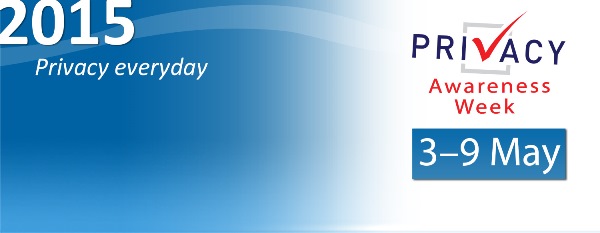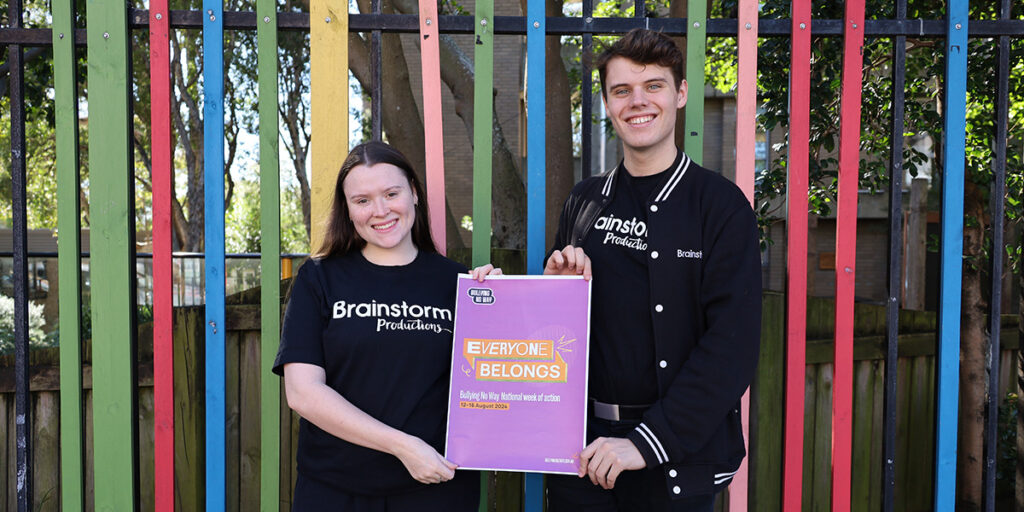Brainstorm Productions is proud to be an education partner for Privacy Awareness Week 2015. This annual event is designed to promote awareness for privacy issues and the importance of the protection of personal information. Check out these great privacy tips from the Office of the Australian Information Commissioner on how to protect your personal information:
Privacy Awareness Week 2015 — Privacy Everyday
The theme for #2015PAW is Privacy everyday. Privacy should be an essential component of everyday life, including in transactions such as internet banking, social media and online shopping. It’s about you and the choices that you make every day. How often do you think about your privacy (or your family and friends’ privacy) when doing any of the following everyday things?
Using social networking sites
- Do you ever stop to think about who’ll be looking at the information you post?
- Have you got permission from your family or friends to post/tag a photo of them?
- Have you adjusted your privacy settings?
Using apps on mobiles and other devices
- Do you know what information these apps are tracking while you are and aren’t using the app?
- Do they really need to have access to your location?
- How much personal information does the app really need to function?
- Ensure your privacy settings are updated whenever your apps are updated
Getting your ID scanned at bars and clubs
- Do you wonder what’s going to be done with your digitised information?
- Have you ever asked how long they keep this information for?
Filling in a form
- Do you read the terms and conditions before you sign up?
- Do you understand the potential consequences of what’s in the small print?
Shopping or banking online
- Do you check the system is secure before providing account or credit card details?
- Do you consider whether your login and passwords have been removed, or that you have logged out properly when using public devices?
Receiving junk mail, spam or telemarketing calls
- Do you ask yourself how they got your details and how to get them to stop contacting you?
Stop and think how the decisions you make every day affect your privacy and take control of your personal information. These decisions are your choices and you can make choices about privacy in a way that works for you.
Ten tips to protecting your privacy
Here are ten tips to consider every day to ensure you look after your personal information:
- Know your privacy rights
- Read privacy policies and notices
- Always ask why, how and who — this will help you to know how your personal information is going to be used
- Check your credit report
- Protect yourself online
- Be aware of your mobile security
- Use security software
- Be careful what you share on social media
- Don’t leave your personal information lying around — make sure your records are properly destroyed
- Beware of scams
More information on these tips, and on your privacy rights, is available at www.oaic.gov.au
Privacy in Australia
Some key things to know about the Privacy Act and how you can exercise your rights.
- Did you know that the Australian Privacy Principles (APPs) govern how your personal information must be handled? The APPs cover a number of important areas, including privacy policies, direct marketing and overseas disclosure of personal information by most public and private sector organisations.
- Credit reporting affects everyone — anyone who has a credit card, store card or uses a telecommunications service provider has a credit report. The information that goes onto your credit report now can impact your ability to get credit (such as a home loan) in the future. You can access your credit report every 12 months for free with one of the following major credit reporting bodies:
- Did you know that the Office of the Australian Information Commissioner (OAIC) is an independent regulator with powers to resolve investigations and promote privacy compliance?
You can’t exercise or enforce your rights if you don’t know what they are — visit the OAIC website to find out more about privacy law.
Privacy policies
All government agencies and private sector organisations that are covered by the Privacy Act must have a clearly expressed and up-to-date privacy policy explaining how they will handle your personal information.
Privacy policies can be long and complex, and most of us don’t read them, but a good policy will tell you what you need to know before you provide your personal information.
Next time you decide to share your personal information, make sure you read the privacy policy to find out:
- what personal information is collected
- if sensitive information is likely to be collected
- if your personal information is likely to be shared with a third party
- if personal information will be disclosed overseas
- how your personal information will be used and disclosed
- how personal information is stored and managed
- how you can access and correct your personal information
- how you can make a privacy complaint.
Online shopping and banking, social media, mobile apps, e-Gov services, loyalty cards and competitions can provide benefits, but make sure you find out how they might use your personal information before agreeing to terms and conditions.
Social media and mobile apps
Social media is great for staying in touch with family and friends, but keep yourself informed and know the risks. Social networking sites are one of the key places for sharing personal information and, with their integration on mobile phones, it is now more important than ever to ensure you read privacy policies, terms and conditions, and to regularly adjust your privacy settings.
A lot of our day-to-day transactions are now completed on our mobile phones, and most of us leave our phones logged in to our email and social media accounts. In February 2015, it was reported that over 9 million Australians use Facebook every day, including 7.3 million who log on with their mobile phones. Twitter reports that they have 288 million monthly users and that there are over 500 million tweets a day.
By adjusting your privacy settings on your social media accounts, mobile apps and devices, and checking for changes in their privacy policies, you can ensure your preferences reflect how you want your personal information to be handled.
Think about the consequences of your actions — your digital footprint is real, and once something is out there it’s almost impossible to have it completely removed.
It’s also important to respect your friends and the people around you — think before you post, tag or share photos or information about other people.
Direct marketing
Australian Government agencies and private sector organisations are only allowed to use your personal information for direct marketing in certain circumstances.
If they do, they have to give you a simple way to opt-out, and they have to action your opt-out request within a reasonable period of time. They also have to tell you where they got your information if you ask.
Access and correction
You have a right to access your personal information, and to correct it if it’s wrong. Government agencies and organisations must respond to a request for access or correction within a reasonable period of time (this is 30 days for agencies, and the OAIC considers that 30 days is reasonable for businesses too), and they have to give you reasons in writing if they refuse to give you access.
ID theft
ID theft and fraud involves stealing money, or illegally gaining other benefits, by using someone else’s identity. The OAIC’s Community Attitudes to Privacy survey found that 21% of Australians had been a victim of ID fraud and theft. ID theft and fraud are on the rise in Australia, and the availability of personal information in the online environment increases the risks to your identity.
Be careful — there are many online and email scams out there. The Australian Competition and Consumer Commission provides useful information on how to protect yourself against scams on their SCAMwatch site. Consider signing up for SCAMwatch, or the StaySmartOnline alert service, which are free email alert services provided by the Australian Government.
If an organisation or person wants to collect personal information from you, ask why the information is required, what they will do with it and who will it be disclosed to:
- Only give your personal information to an organisation that you trust.
- Only give out as much personal information as you need to.
- Think twice before posting any personal information about yourself online.
- Make sure the anti-virus software on your computer is up-to-date, and make sure your network is protected by a firewall.
- Keep an eye on your credit card and bank statements for suspicious transactions.
Don’t leave your privacy to chance.
Have you had a privacy problem?
If you think that your personal information has not been handled properly, your first step is to complain to the entity, and give them 30 days to respond.
If they don’t respond, or you’re not happy with their response, you can then make a complaint to us.
For more information go to the QAIC website or call their Enquiries Line on 1300 363 992.





